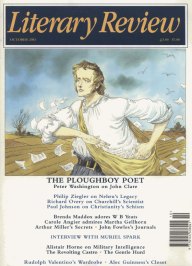Philip Ziegler
The Heart Of A Nation
Nehru: A Political Life
By Judith M Brown
Yale University Press 407pp £25
No TWENTIETH-CENTURY man influenced the development of a great democracy more than Jawaharlal Nehru. Stalin, Hitler, Mao: all in their time changed the destinies of their countries; however, they sought not to work with their people but to impose their vision regardless of the people's will. Nehru had authoritative tendencies - he recognised and even feared them - but he knew that he would only succeed in the end if he took the Indians along with him. Viewing his country today, he would probably feel that his vision had foundered, yet the fact that against all the odds India has survived united, more or less democratic and economically afloat, is a tribute to his role in its creation. He was one of the titans of the twentieth century.
There have been many books about him, but since Sarvepalli Gopal's majestic if somewhat partial official biography not one as scholarly or Nehru: well considered as this by Judith Brown. She subtitles her book 'A Political Life' but rightly points out that 'the historian who seeks to understand the public

Sign Up to our newsletter
Receive free articles, highlights from the archive, news, details of prizes, and much more.@Lit_Review
Follow Literary Review on Twitter
Twitter Feed
It wasn’t until 1825 that Pepys’s diary became available for the first time. How it was eventually decrypted and published is a story of subterfuge and duplicity.
Kate Loveman tells the tale.
Kate Loveman - Publishing Pepys
Kate Loveman: Publishing Pepys
literaryreview.co.uk
Arthur Christopher Benson was a pillar of the Edwardian establishment. He was supremely well connected. As his newly published diaries reveal, he was also riotously indiscreet.
Piers Brendon compares Benson’s journals to others from the 20th century.
Piers Brendon - Land of Dopes & Tories
Piers Brendon: Land of Dopes & Tories - The Benson Diaries: Selections from the Diary of Arthur Christopher Benson by Eamon Duffy & Ronald Hyam (edd)
literaryreview.co.uk
Of the siblings Gwen and Augustus John, it is Augustus who has commanded most attention from collectors and connoisseurs.
Was he really the finer artist, asks Tanya Harrod, or is it time Gwen emerged from her brother’s shadow?
Tanya Harrod - Cut from the Same Canvas
Tanya Harrod: Cut from the Same Canvas - Artists, Siblings, Visionaries: The Lives and Loves of Gwen and Augustus John by Judith Mackrell
literaryreview.co.uk